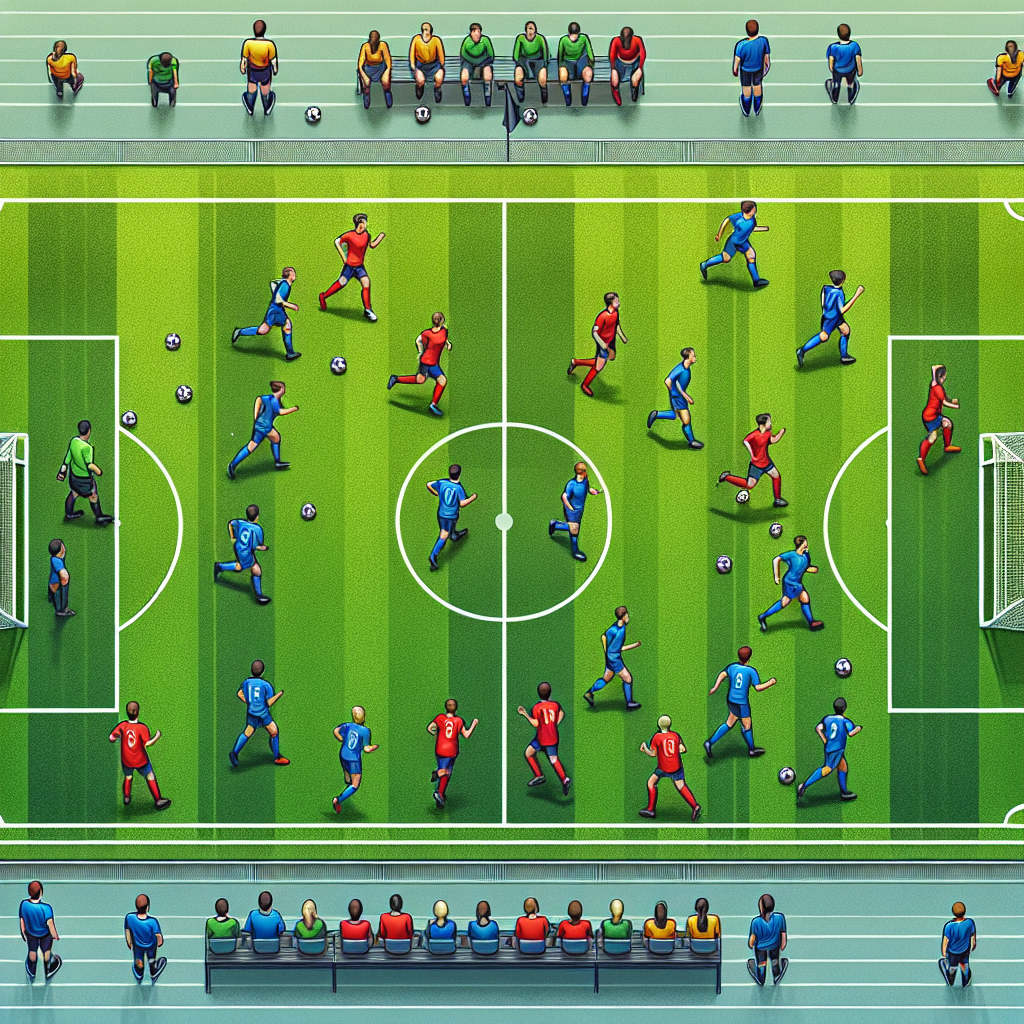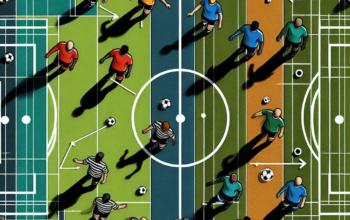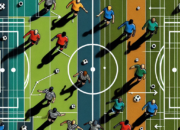Introduction
In the fast-paced world of soccer, the current form of a team can have a profound impact on the final scores of matches. Factors such as morale, player fitness, and tactical execution all play crucial roles in determining how well a team performs on any given day. Analyzing how team form influences final soccer scores can reveal patterns that serious fans, coaches, and bettors alike can benefit from. This article will delve deep into the various aspects of team form, exploring its implications on performance and outcomes in 2025’s competitive soccer landscape.
The Impact of Recent Performance on Soccer Scores
One of the most significant indicators of a team’s potential success is its recent performance—the outcomes of their last few matches. A team on a winning streak usually carries momentum that can dramatically influence their play. This psychological edge is particularly advantageous during high-stakes matches where the pressure is intense. For instance, a club like Manchester City, which dominated the Premier League during the last seasons, exemplifies how consistent wins can elevate a team’s confidence and performance levels, contributing directly to favorable final scores.
Conversely, teams struggling with consecutive losses often experience a dip in morale, leading to compounded issues on the field. Players may become hesitant or overly cautious, disrupting their usual game flow. When teams face a daunting string of defeats, they often start second-guessing their strategies and may even play tentatively, which can significantly lower their chances of scoring and securing victories. In 2025, clubs like Everton, which found themselves battling relegation due to poor form in the preceding seasons, demonstrated how quickly team morale can spiral downwards, directly impacting their final scores through lack of cohesion and confidence.
<h2The Role of Injury and Fitness Levels
Injuries can drastically influence a team’s performance, impacting the final scores in critical matches. Soccer is a physically demanding sport; thus, having key players sidelined can diminish a team’s competitive edge. If clubs like Barcelona or Bayern Munich in 2025 experience injuries to their star players, the potential impact on match outcomes can be profound. Not only does the absence of a pivotal player disrupt the tactics laid out by the coach, but it also springs into action a ripple effect that can strain the overall team composition.
Moreover, fitness levels across the squad play an essential role in determining match outcomes. As teams advance in competitions, fatigue often sets in, causing dips in performance during key moments. Higher-performance levels in physical fitness usually correlate with superior agility, speed, and tactical execution, enabling teams to outmaneuver their opponents. In 2025, clubs investing in advanced fitness and recovery strategies began to witness substantial improvements in performance consistency, leading to higher final scores. Studies indicated that robust fitness programs allowed teams to maintain their performance levels longer, crucial in competitive leagues like Serie A and La Liga.
The Tactical Approaches of Different Teams
Tactical strategies and formations are vital components that influence a team’s form, and consequently, the final score of matches. Each team’s tactical approach can adapt based on player skills, opponent analysis, and situational needs. For instance, when Pep Guardiola’s Manchester City employs high pressing and fluid attacking movements, it often leads to high-scoring games, as they overwhelm opponents with their relentless style. In 2025, such strategies continued to evolve; teams adopted data-driven approaches to fine-tune their tactics for each game, allowing for greater adaptability and ultimately impacting the final score.
Coaches must also be adept at making in-game adjustments based on the ongoing flow of the match. In 2025, we witnessed how clubs with astute coaching insights could shift formations, thereby revitalizing team efficiencies even when down in score. For example, when Liverpool’s Jürgen Klopp altered formations to a more defensive posture during critical fixtures, the team often managed to secure draws or narrow losses, significantly impacting their overall point collection in league play. Such tactical flexibility can be the difference between a triumphant scoreline and one that reflects disappointment.
The Psychological Factor in Team Form
The psychological state of players can weigh heavily on how a team performs in matches. High team morale can galvanize efforts, pushing players to exceed their limitations and enhancing teamwork. For clubs like Arsenal, which often faced scrutiny during tough seasons, instilling a positive mindset has become essential to overcoming hurdles. By employing sports psychologists, teams in 2025 have increasingly focused on mental resilience, leading to better performance in tight match situations, directly contributing to favorable final scores.
However, the inverse is also true; pressure can lead to performance anxiety, particularly during high-stakes encounters such as derbies or playoffs. A team like Newcastle, which built a predominantly young squad in recent years, has fluctuated in performance as inexperience led to difficulties during tense situations. Such mental barriers can hinder gameplay, resulting in missed opportunities for scoring and, ultimately, disappointing final scores. Thus, addressing mental health and workplace dynamics became integral themes for successful teams in the current soccer landscape.
The Importance of Support from Fans and the Local Community
The influence of fans may be underestimated when discussing how team form affects final scores, yet crowds’ support can lift players to perform beyond their capabilities. Home-field advantage is a significant factor in many leagues, as teams playing in familiar environments often feel increased motivation to impress their fans. In 2025, clubs across Europe have recognized the importance of creating a welcoming atmosphere in stadiums, where fan engagement strategies are aimed at enhancing local support, ultimately impacting performances and securing essential wins.
In tighter contests, a loud and passionate crowd can serve as a 12th man, altering the energy on the pitch. Close matches frequently swing on morale-building moments—the roar of the crowd can ignite a passionate response from players, turning the tide in their favor. For struggling clubs, this support acts as a disincentive for poor performances, pushing players to deliver results even when the odds are against them. Thus, creating an emotional bond between fans and players contributes significantly to achieving more favorable final scores.
Conclusion
The influence of team form on final soccer scores in 2025 is a multifaceted issue that encompasses various elements including recent performance, injuries, tactical strategies, psychological conditions, and fan support. Understanding how these factors interplay not only enhances our appreciation of the game but also allows fans, coaches, and analysts to make more informed predictions regarding match outcomes. Whether a team is thriving or struggling, the impact of team form remains a critical variable that shapes the competitive landscape of soccer.
FAQs
What is team form in soccer?
Team form refers to a team’s current performance level, often evaluated based on recent match results, player fitness, morale, and tactical effectiveness.
How do injuries affect a team’s performance?
Injuries can limit a team’s ability to execute their strategies effectively, leading to reduced performance levels and affecting the final score of matches.
Are tactical decisions significant in determining match outcomes?
Yes, tactical decisions made by coaches can significantly influence how well a team performs and ultimately their chances of winning a match.
Can fan support impact a team’s performance?
Absolutely! Fan support can motivate players to perform better, particularly in home games, influencing the final score through enhanced morale and energy.
What role does mental state play in team performance?
Mental state affects players’ mindset and decision-making, which can greatly impact their gameplay, leading to variations in performance and final scores.






